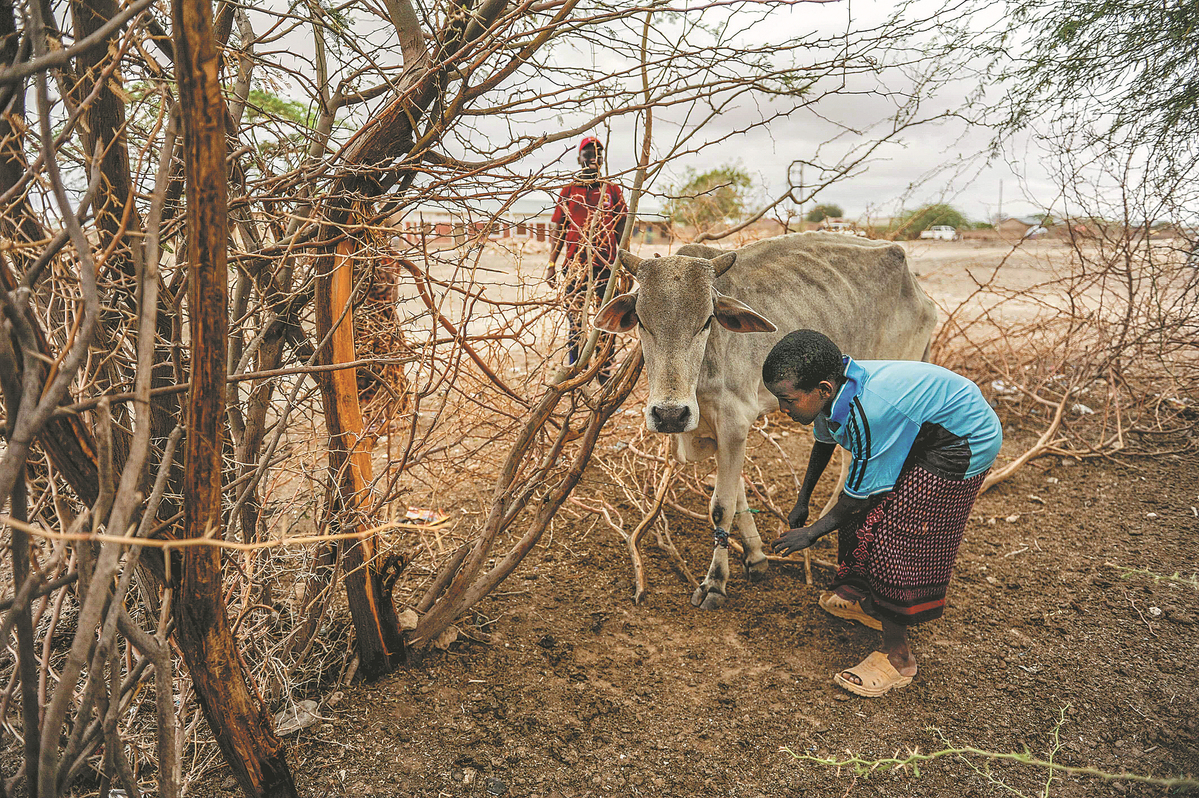33 African countries in need of food aid, UN agency says
By Edith Mutethya in Nairobi, Kenya | chinadaily.com.cn | Updated: 2023-03-08 22:22

Forty-five countries across the globe, including 33 in Africa, are in need of external food assistance due to conflicts, drought, economic downturn and natural disasters, according to a Food and Agriculture Organization report.
The crop prospects and food situation quarterly report, published on Monday, said persisting drought in East Africa raise serious concerns about levels of acute food insecurity, with famine projected to occur among agro-pastoral households in Somalia.
The country is on the brink of famine due to the unprecedented drought triggered by five consecutive poor rainy seasons and an anticipated sixth.
The situation has been exacerbated by high food and water prices, conflict and poor access to water, sanitation and health services.
According to the FAO, 6.5 million people in the East African country are estimated to face severe acute food insecurity between April and June.
This includes about 223, 000 people in catastrophic situations following poor rainy seasons and heightened conflict.
Rein Paulsen, director of the FAO's Office of Emergencies and Resilience, said while the UN agency's livelihood assistance is saving lives and paving the way for faster recovery for many, the protracted crisis now in its third year has exhausted the coping strategies of the most vulnerable.
This has left families experiencing destitution, displacement, childhood malnutrition and even loss of life.
While Somalia, Kenya and Ethiopia are grappling with their worst droughts in four decades — droughts that have left 36.4 million acutely food insecure — other parts of Africa are also experiencing food insecurity due to internal conflicts, high food prices and floods.
In Chad, about 1.5 million people are projected to experience acute food insecurity between June and August, including 32,500 in emergency situations, according to Harmonized Framework analysis.
FAO attributes the acute food insecurity in the country to persisting insecurity in the Lac and Tibesti regions, which had displaced over 380,000 people by January.
Despite being affected by civil conflict, the country is also hosting about 595,000 refugees mostly from Cameroon, the Central African Republic, Nigeria and Sudan.
In the Democratic Republic of Congo, FAO estimates 24.5 million people will experience acute food insecurity by June.
This is due to persisting conflict in eastern provinces of North Kivu, South Kivu and Ituri which continues to cause displacements, as well as the high prices of domestic food staples.
As of the end of last year, over one million Congolese refugees and asylum seekers were hosted in several neighbouring countries, 474,000 of which were in Uganda.
In Nigeria, about 25.3 million people are projected to face acute food insecurity between June and August, including about 1.9 million people in emergency situations and nearly 4, 000 in catastrophe, FAO data indicates.
The acute food insecurity is mostly driven by the deterioration of security conditions and conflicts in northern states as well as high food prices.
























